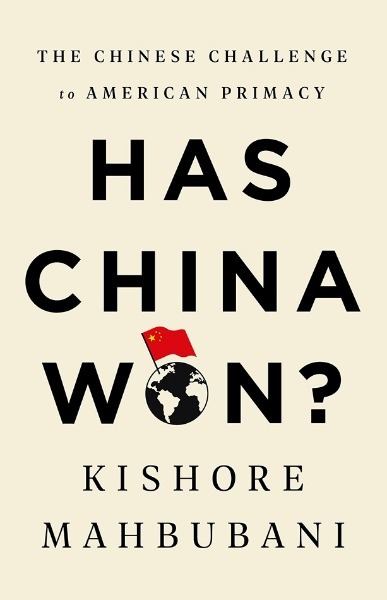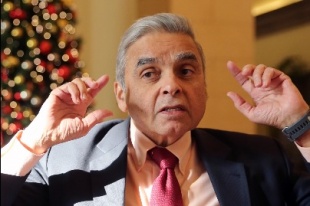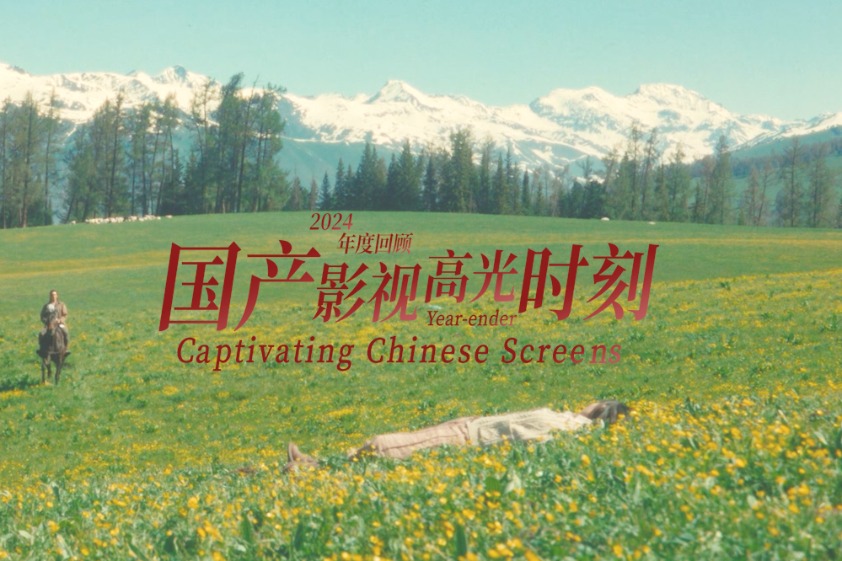Up to the job
In his new book, Kishore Mahbubani argues that the Communist Party of China is a stabilizing influence in an uncertain world, Andrew Moody reports.


The book is his first since Has the West Lost It? A Provocation, published in 2018, and he has managed to corner the market in geopolitical books that also have an Asian perspective. His other titles include Can Asians Think? (2001) and The Great Convergence (2013).
A theme in his new book is that the US is making a major error by trying to re-enact the Cold War in dealing with China when the world's second-largest economy is unlike the former Soviet Union.
It is also compounding the error by forgetting the tenets set out by US diplomat George Kennan in the late 1940s for victory in such a contest, which consist of having a more dynamic society, cultivating friends and allies, not insulting your rival and being humble.
"What's interesting is that if Kennan were alive today, he would notice that none of these four pieces of advice have been heeded by the United States in taking on China," he says.
Mahbubani, now a professor at the National University of Singapore, says what would astonish Kennan, who died at age 101 in 2005, more than anything else would be the decline in the living standards of the bottom 50 percent of society in the US over the past 30 years and the unprecedented rise of those in China.
"It is the only major developed society where the average income has gone down. Yet, at a time when Chinese people have never been as well off, the Americans are asking the Chinese people, why they are not overthrowing their government? It's really bizarre."
Mahbubani argues forcefully that the CPC is, in fact, one of the main stabilizing influences in a very uncertain modern world.
"The Communist Party of China is delivering many global public goods by helping to keep the global system stable. It is behaving responsibly toward a wide variety of challenges the world is facing, particularly global warming," he says.
He is impressed by the meritocratic nature of the Party and says it is one of the few government systems in the world that is really up to dealing with all the modern challenges.
"Because you're really dealing with a very complex world nowadays, you do need to have leaders with a very good quality of mind, who can understand anything from very complex macroeconomic problems to the science behind a virus like COVID-19."
Yet, all the time, says Mahbubani, Americans are wanting the Chinese to be more like them and move toward a Western liberal democracy.
"As others such as Graham Allison (the US political scientist), have pointed out you have to be careful what you wish for. When the US was emerging as a great power at the turn of the 20th century, it elected 'Teddy' Roosevelt as president whose idea was that if you develop muscles, you must use them," he says.
Mahbubani says one thing the pandemic has highlighted is the competence of not just China but other government systems in East Asia in dealing with the crisis.
"We are still surrounded by the fog of war, and so let's not pass final judgment but China managed to shut down an entire province of 60 million people around the time of the Chinese New Year holiday. If America were to try and do this a few days before Thanksgiving, it would have been impossible," he says.
"It has to be acknowledged that the fight back against the in East Asia has been carried out using Western modern medicine, but why doesn't the West make this a two-way street of learning and come to learn from East Asia, too, and learn from the government systems there?"
Mahbubani, who was born in Singapore but is the son of parents from Hyderabad, which was then in British India but now in Sindh, Pakistan, became Singapore's permanent representative to the UN.
"I was a diplomat for 33 years, and you know when I started in 1971, I would enjoy talking to a visiting American diplomat who would want to discuss with you the latest article he'd read in the New Yorker or wherever. You are now more likely to have that conversation with a Chinese diplomat," he says.
"I am not saying American diplomats are now not well-informed but there is a sense of demoralization within the State Department with many of the top appointments political and so it is difficult for the top people in the service to get to the top."
Mahbubani makes the point in the book that while the US was the natural ally of Europe during the Cold War, China may be its more important strategic partner in the future.
This is because the biggest strategic threat to Europe is likely to be the population explosion in Africa leading to huge migration pressure. By 2100, Africa's population is forecast to be 4.5 billion, 10 times that of Europe, whereas in 1950 Europe's population was nearly double that of Africa.
Mahbubani says Europe should embrace the fact that China is a major investor in Africa, providing a catalyst for its development.
"Europe should therefore partner with any country that is investing in Africa, and especially China. Europeans are still not thinking strategically about where their own core interests lie. The key part of the word geopolitics is 'geo' and that is about geography," he adds.
"Europeans, mistakenly in my view, keep assuming their core strategic interests are aligned with those of the United States."
Mahbubani says he hopes people will not conclude after reading his book that everything is about the US and China.
"There are 330 million people in the United States and 1.4 billion people in China, so that still leaves 6 billion other people," he says.
He says the 21st century will be dominated by Asia, although with the US as a Pacific power still having a significant role.
"The big decisions will be taken in the capitals of Asia, Beijing, New Delhi, Tokyo and maybe Jakarta, as well as Washington DC. This is in contrast to the 19th century when it was London, Paris, Madrid and even Amsterdam that dominated a largely colonial world and a large part of the 20th century when it was Washington and Moscow," he says.
He says this will largely be determined by economics because of Asia's rising middle class.
"This will be driven not just by national power but by market demand, and the world's largest middle classes by far will be in Asia, and so if you're a major corporation anywhere in the world you are not going to succeed if you ignore this market," he adds.





































